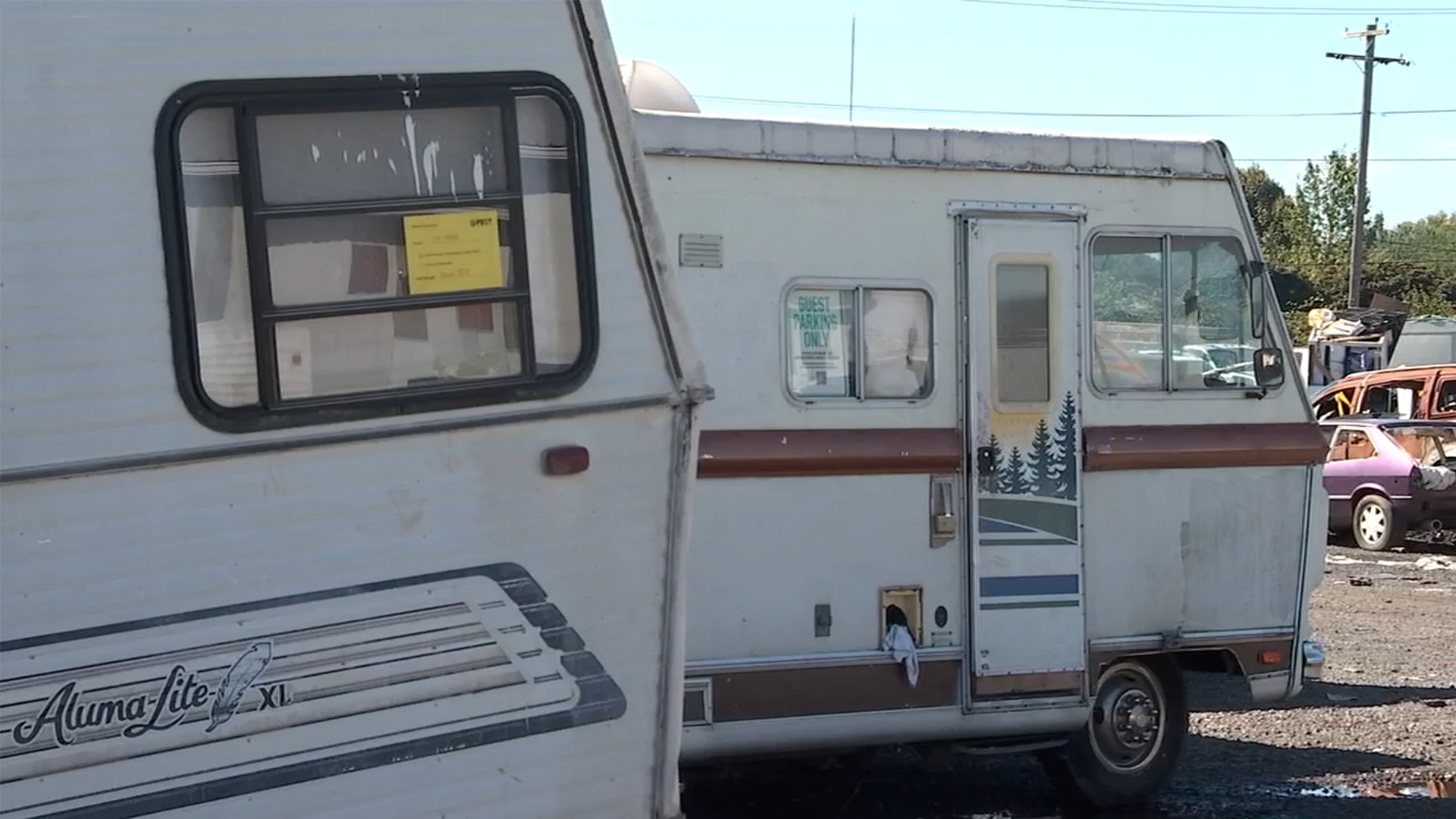PORTLAND, Ore. — The City of Portland is preparing to implement new fees for homeless individuals seeking to reclaim their lived-in recreational vehicles (RVs) after they are towed. The move marks the latest step in Mayor Keith Wilson’s strategy to address the growing number of people living in vehicles parked on city streets.
From Free Retrievals to Paid Fees
Until now, individuals whose RVs were towed could reclaim their vehicles free of charge if they presented proof of ownership within 30 days. Under the new proposal, they will instead be required to pay, with costs expected to exceed $300 per vehicle.
Speed’s Towing, which contracts with the city, confirmed the shift would likely reduce the number of people reclaiming their vehicles. “We used to see a lot of repeat customers—people who’d get their RVs towed, pick it up for free, then get towed again a few weeks later,” said lot manager DJ Edwards. “Now that proof-of-ownership requirements have gotten stricter, those repeat visits have slowed. If we add fees on top of that, even fewer will come back.”
Also Read
On average, Speed’s Towing releases about five RVs a week without charge. With the new policy, that number is expected to decline significantly.
The Human Toll
For Portland’s unhoused residents, the change could be devastating. Many who live in RVs see them as their only stable housing option, despite mechanical issues or legal risks.
Heather Smith, who has been homeless for 16 years, described how she lost her RV after it broke down. “I had to make a choice because PBOT [Portland Bureau of Transportation] said they were going to take either my car or my RV. I chose my RV, but a week later it broke down, and they took that too,” she said.
Now living in a tent in Northeast Portland’s Cully neighborhood, Smith said shelters aren’t a viable alternative. “They think they are teaching us a lesson by forcing us into a shelter. Well, I’m not going to get forced into anything I don’t want to do,” she explained. “You don’t need four walls to have a home, and you don’t have to be in a shelter to be considered to have a home.”
City’s Rationale
Mayor Wilson has argued that RV living is not a safe or sustainable option within Portland city limits. He cited concerns about waste disposal, with few designated dumping sites available, as well as hazards posed by large RVs blocking bike lanes and restricting emergency vehicle access.
In August, Wilson told city council he wants to increase monthly RV tows from 38 to 96, describing the expansion as a necessary crackdown on unsafe street camping.
He has pointed to the city’s growing network of shelters—both overnight and day-use facilities—as safer alternatives. Still, critics note that many unhoused people resist entering shelters, citing concerns about safety, privacy, and autonomy.
End of the Sunderland RV Safe Park
The debate comes as Portland prepares to close the Sunderland RV Safe Park, one of the few alternatives for vehicle dwellers seeking stability. The closure, set for the end of the month, will eliminate one of the city’s only sanctioned spaces for RV residents.
Wilson has said there are no plans to replace the site, reiterating his belief that RVs are not a safe or appropriate long-term housing solution.
Critics Say Policy Will Backfire
Advocates warn that charging fees for towed RVs will strip homeless residents of their last remaining possessions and deepen the crisis. “There are not a lot of people who can afford that,” Smith said. “They are going to lose their vehicles, and they are going to lose their homes.”
With an estimated cost of several hundred dollars per retrieval, many expect the policy will lead to abandoned RVs filling tow yards rather than being reclaimed.
What Comes Next
According to a spokesperson from PBOT, the city has not yet begun collecting fees but plans to implement the new system soon. Once in effect, it will mark a sharp departure from Portland’s previous approach, which allowed some unhoused residents to reclaim their vehicles at no cost.
The change underscores the tension between the city’s goals of clearing streets of lived-in vehicles and the reality faced by Portland’s unhoused community, many of whom see RVs as their only option for shelter.












